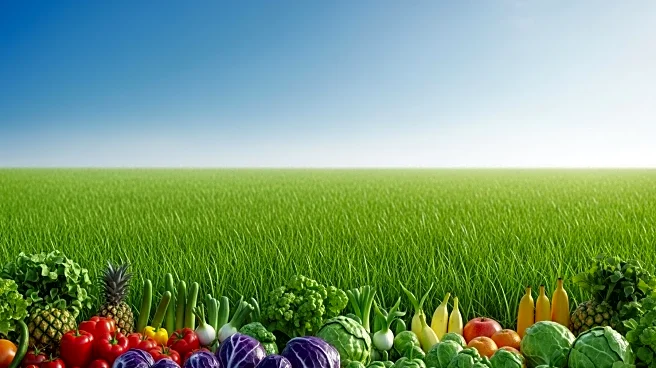What is the story about?
What's Happening?
The National Geographic Society and PepsiCo have announced a new initiative called 'Food for Tomorrow,' aimed at promoting regenerative agriculture. This program seeks to inspire positive change in the global food system by leveraging science, storytelling, and education. It will support National Geographic Explorer-driven stories and scientific projects that focus on sustainable and regenerative practices in food production. The initiative addresses the challenge of feeding a growing global population, projected to reach 10 billion by 2050, while combating environmental threats like soil degradation. PepsiCo has committed to adopting regenerative practices across 10 million acres by 2030, highlighting the importance of collaboration between the food industry and farmers.
Why It's Important?
The 'Food for Tomorrow' program is significant as it addresses critical environmental and food security challenges. Regenerative agriculture offers a sustainable solution to restore soil health and natural resources, which is essential for feeding the future population and mitigating climate change impacts. By promoting these practices, the initiative aims to strengthen the food system and protect the planet. PepsiCo's involvement underscores the role of major corporations in driving sustainable agricultural practices, potentially influencing industry standards and consumer choices. This collaboration could lead to increased resilience in food production and contribute to global efforts to combat climate change.
What's Next?
The program will initially support five National Geographic Explorers, who will share stories about sustainable practices in food production. Additionally, scientific grants will be awarded to projects that apply science to real-world contexts, aiming to scale regenerative agricultural practices globally. A data visualization mapping tool will be developed to showcase the benefits of regenerative agriculture, planned for publication on the National Geographic Society website in 2026. These efforts are expected to raise awareness and empower stakeholders to make more sustainable food choices, potentially influencing policy and industry practices.
















